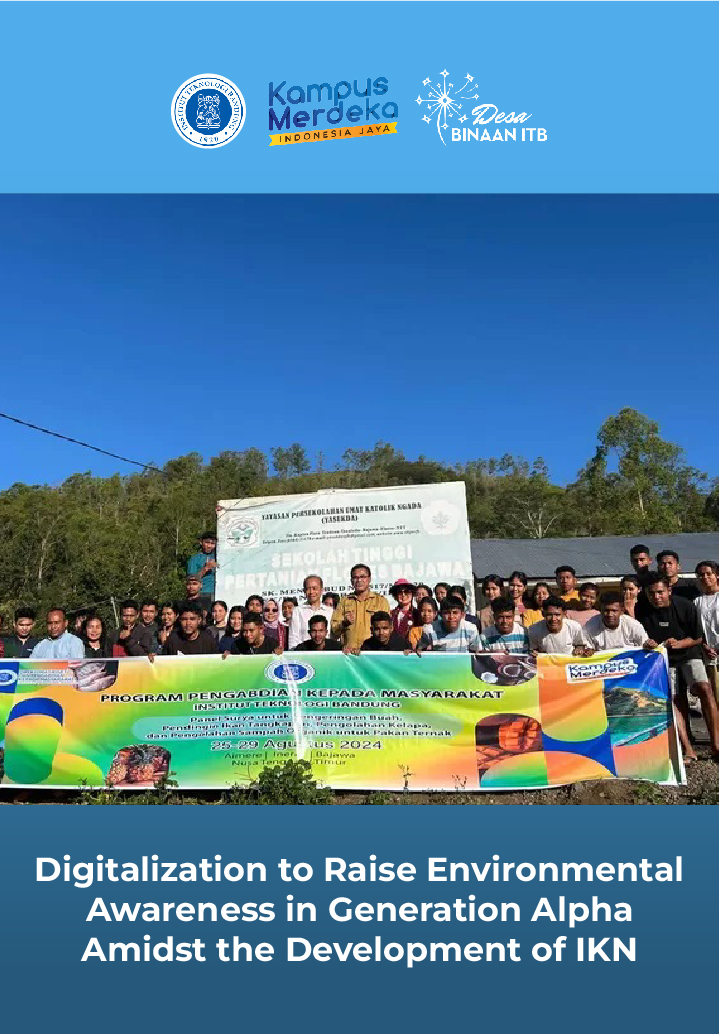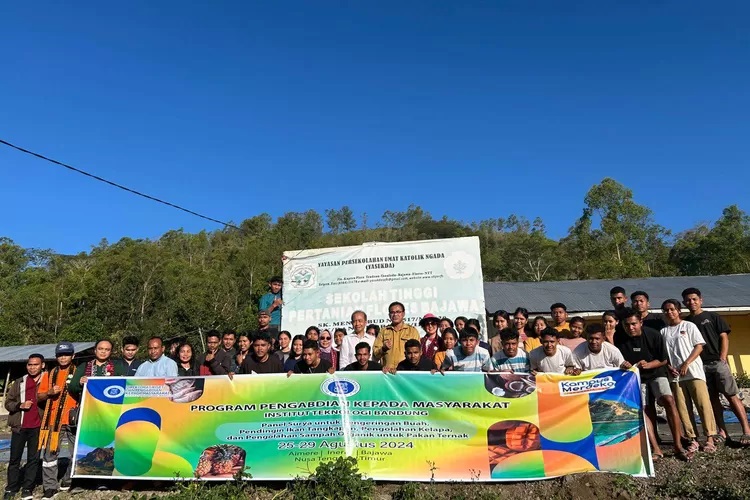

In an effort to improve the welfare of rural communities, the Directorate of Research and Community Service (DRPM) ITB team returned to Ngada Regency, East Nusa Tenggara (NTT). Led by Prof. Dr. Ir. Lienda A. Handojo, M.Eng and Ir. Sanggono Adisasmito, M.Sc., Ph.D., the team carried out programs in several locations such as Aimere Village, Inerie Village, and Bajawa City from August 25 to 29, 2024.
The visit focused on four main areas: fruit drying, coconut utilization, providing cooling equipment for fish catch, and processing organic waste into animal feed. In each activity, the technology introduced was tailored to the local potential to support the sustainable economy of the village community.
In Inerie Village, the fruit drying program led by Prof. Lienda has been running since 2022. The goal is to help local farmers dry their harvests, allowing fruits to be stored longer and maintain their market value even outside of the harvest season. By using drying machines, fruits such as mango, pineapple, banana, coconut, and pumpkin are now processed into dried products, which are being marketed in Labuan Bajo through a partnership with New Eden Moringa.
In addition, the DRPM team also assisted the people of Inerie Village in coconut processing. This includes quality control of virgin coconut oil products previously produced, as well as the development of cooking oil products that are now in production. Ferdinandus Ria, Acting Head of Inerie Village, explained that the village community has traditionally relied on seasonal agriculture. However, with the introduction of modern farming techniques, they have begun shifting to long-term crops such as wood, cloves, and cocoa. Despite this, agricultural product processing technology is still lacking, so ITB’s activities are expected to improve product quality and competitiveness in the market.
In the southern coastal region of Ngada Regency, ITB DRPM introduced cooling equipment to help fishermen preserve the freshness of their fish catches. This technology is expected to increase the selling price and extend the shelf life of fish, especially in Inerie and Aimere Villages.
Together with the Flores Bajawa College of Agriculture (STIPER), the DRPM team developed technology to process organic waste into animal feed. Dr. Nicolaus Noywuli, S.Pt., M.Si, the Rector of STIPER, appreciated this collaboration, stating that the technology can utilize up to 60% of agricultural waste as raw material for livestock feed. Thus, in addition to reducing waste, this technology also provides high-quality feed at a more affordable price for local farmers.
Dr. Nicolaus hopes that the collaboration with ITB will continue, allowing them to learn more from the innovations developed by ITB. Meanwhile, Prof. Lienda emphasized that the program aims not only to introduce technology but also to empower the local community so they can independently manage their potential.
Positive responses from the local community indicated the success of this program. Imelda Nginnu, a dried fruit artisan in Inerie Village, expressed her gratitude to ITB for the assistance provided, which she said had greatly helped increase her family's income.
Prof. Lienda concluded the visit by stating that this program is part of ITB's commitment to contributing to community development, especially in areas with significant potential that has not yet been fully utilized.
Related News:
www.kliklabuanbajo.id: Mendorong Kemajuan Desa, DRPM ITB Perkenalkan Teknologi di Nusa Tenggara Timur
